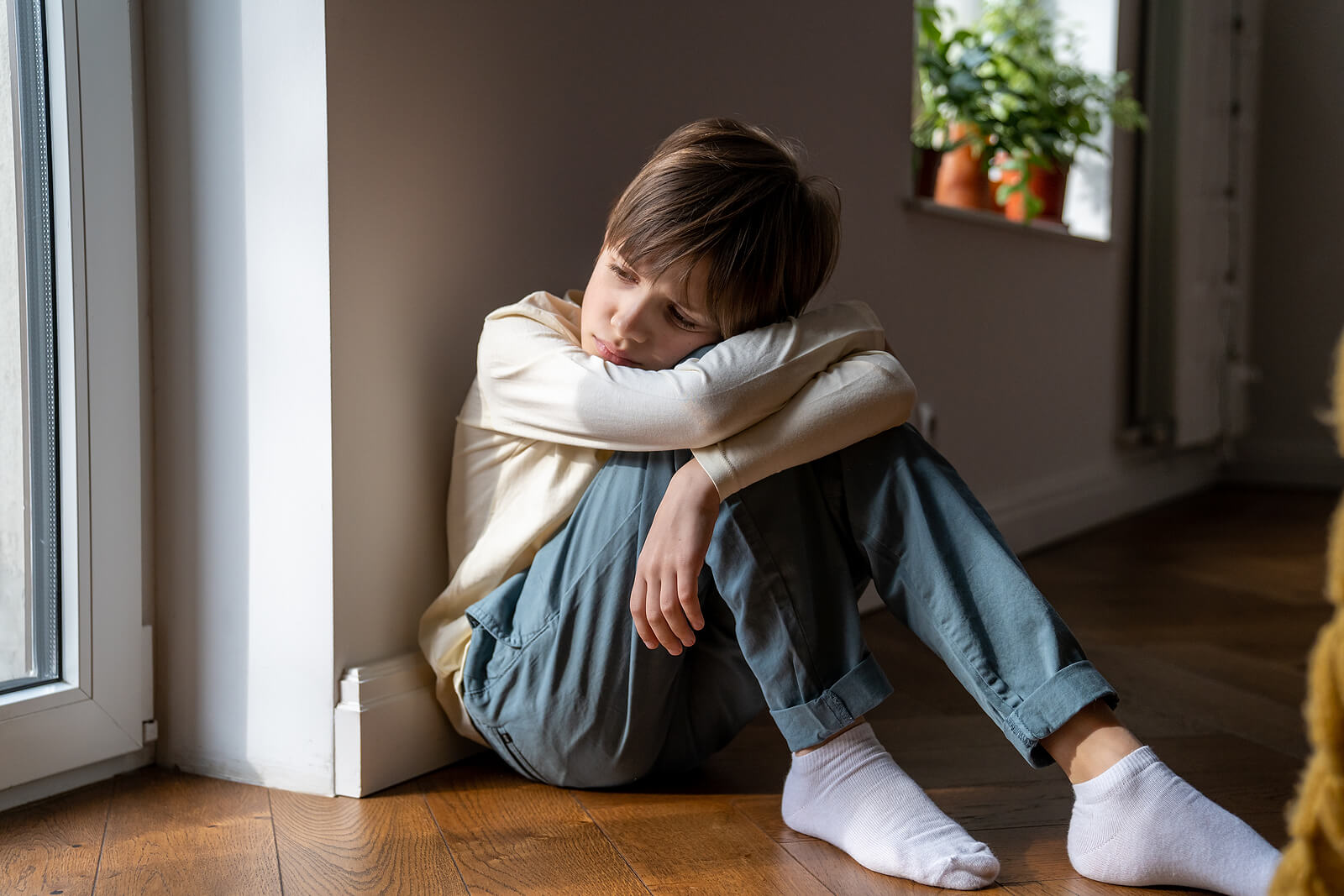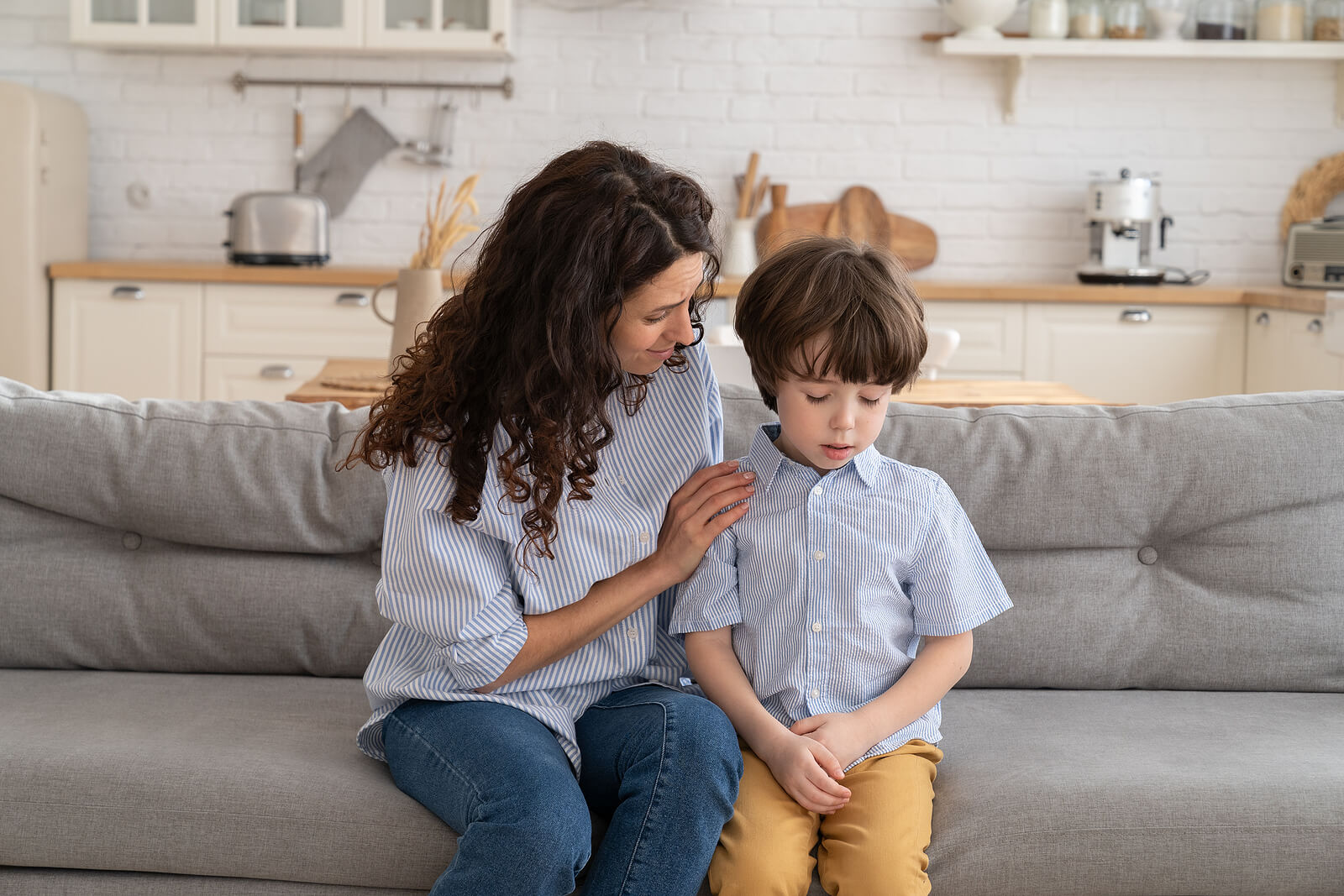Written By: Habeebah Abdul-Salaam, LSW
When we think of depression, we often picture sadness, withdrawal, and a loss of joy. While these signs can certainly appear in children, depression in kids can look quite different from how it manifests in adults. As a parent or caregiver, recognizing the early signs of childhood depression is crucial. Early intervention, including therapy for children, can make a powerful difference in your child’s emotional health and long-term well-being.

Understanding Childhood Depression
Childhood depression is not just a phase or something your child will “grow out of.” It is a real and serious mental health condition that can interfere with a child’s everyday life. Including their ability to function at school, interact socially, and enjoy activities they once loved.
Unlike adults, who may express depression through persistent sadness or hopelessness, children often show emotional distress in more subtle—and sometimes confusing—ways.
Common Signs of Depression in Children
Irritability Over Sadness
One of the hallmark signs of depression in children is irritability rather than just sadness. Your child may seem unusually moody, frustrated, or quick to anger. Especially in situations where they previously had patience. Outbursts or defiant behavior may increase, particularly at home.
Low Energy and Fatigue
Children with depression often experience chronic tiredness or low motivation. You might notice that your child is sleeping more than usual or struggling to get out of bed. They may say they’re tired all the time or seem “sluggish” throughout the day, even with adequate rest.
Loss of Interest in Favorite Activities
If your child has stopped wanting to play with friends, engage in hobbies, or do activities they once loved, it’s a red flag. Anhedonia, or the loss of interest in previously enjoyable activities, is a key symptom of depression.
Changes in Appetite or Sleep Patterns
Children with depression may eat significantly more or less than usual. Similarly, you might notice insomnia or excessive sleeping. These physiological changes can affect their ability to focus and function in school.
Low Self-Esteem or Frequent Self-Criticism
Pay attention to statements like “I’m stupid,” “Nobody likes me,” or “I can’t do anything right.” Negative self-talk or expressions of worthlessness should not be brushed off as typical childhood angst.
Social Withdrawal
A child who was once sociable may start isolating themselves, avoiding friends and family, and showing less interest in playdates or social activities.
Physical Complaints Without Clear Medical Cause
Children may express their emotional pain through physical symptoms like headaches, stomachaches, or frequent visits to the school nurse.
Trouble Concentrating or Decline in School Performance
Depression can make it difficult for a child to focus, remember things, or stay organized. Teachers may notice a drop in grades or changes in classroom behavior.

Why Therapy For Children Is Essential for Depressed Kids
Children often don’t have the words or emotional insight to explain what they’re feeling. Therapy for children offers a safe, structured space where they can explore these emotions and learn healthy coping mechanisms.
Here’s how a supportive child therapist can support a child’s recovery from depression:
- Emotional Expression and Validation
Therapists use developmentally appropriate techniques (like play therapy, art, or storytelling) to help children express feelings they may not yet understand or know how to verbalize. Simply being heard and validated can ease emotional burdens. - Skill-Building
Through cognitive behavioral therapy (CBT) and other evidence-based approaches, children learn how to identify negative thought patterns, reframe them, and develop problem-solving and emotion regulation skills. - Support for the Family
Parental involvement is a key part of successful treatment. Family therapy or parent coaching can help caregivers better understand their child’s needs, improve communication, and foster a more supportive home environment. - Early Intervention = Better Outcomes
The earlier a child receives help, the better their chance for full recovery. Untreated childhood depression can lead to more serious mental health problems in adolescence and adulthood, including anxiety disorders, substance abuse, and even suicidal ideation.
Final Thoughts From A Child Therapist In NJ
Childhood depression can be frightening. For both the child experiencing it and the parent trying to understand it. But with early recognition and the right therapeutic support, children can recover and go on to lead emotionally healthy, fulfilling lives.
If you’re noticing signs of depression in your child, take the next step. Reach out to DBT of South Jersey. With the right help, things can get better, and your child does not have to face it alone.

Helping Your Child Heal From Depression with Therapy for Children in South Jersey
If your child is struggling with sadness, isolation, or changes in behavior, now is the time to seek support. DBT of South Jersey offers compassionate, evidence-based care tailored to your child’s emotional needs. Find strength and healing through professional therapy for children in South Jersey—because your child’s well-being matters. Follow these three simple steps to get started:
- Contact us to book a free consultation with our intake team
- Meet with one of our skilled child therapists
- Start seeing your child heal from their depression!
Additional Services Offered at DBT of South Jersey
Sources:
https://childmind.org/article/dbt-dialectical-behavior-therapy/

